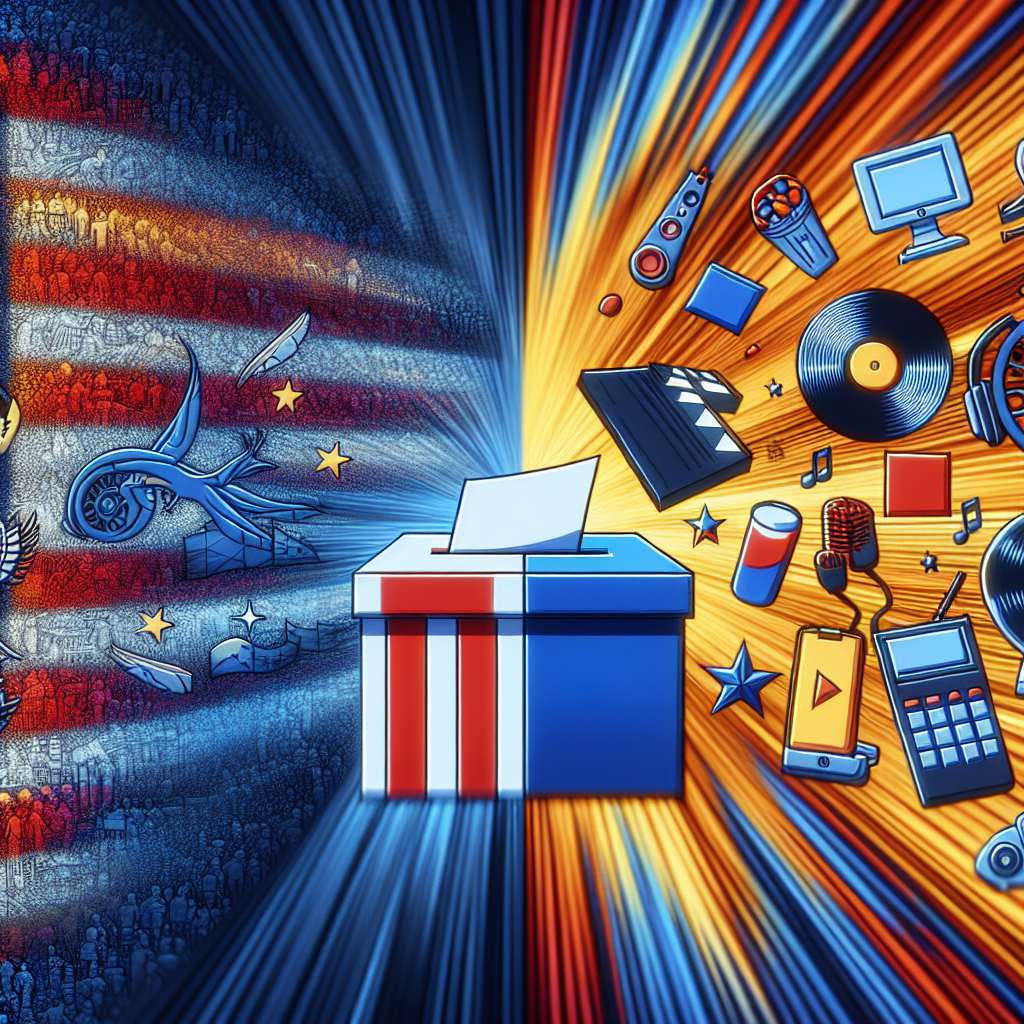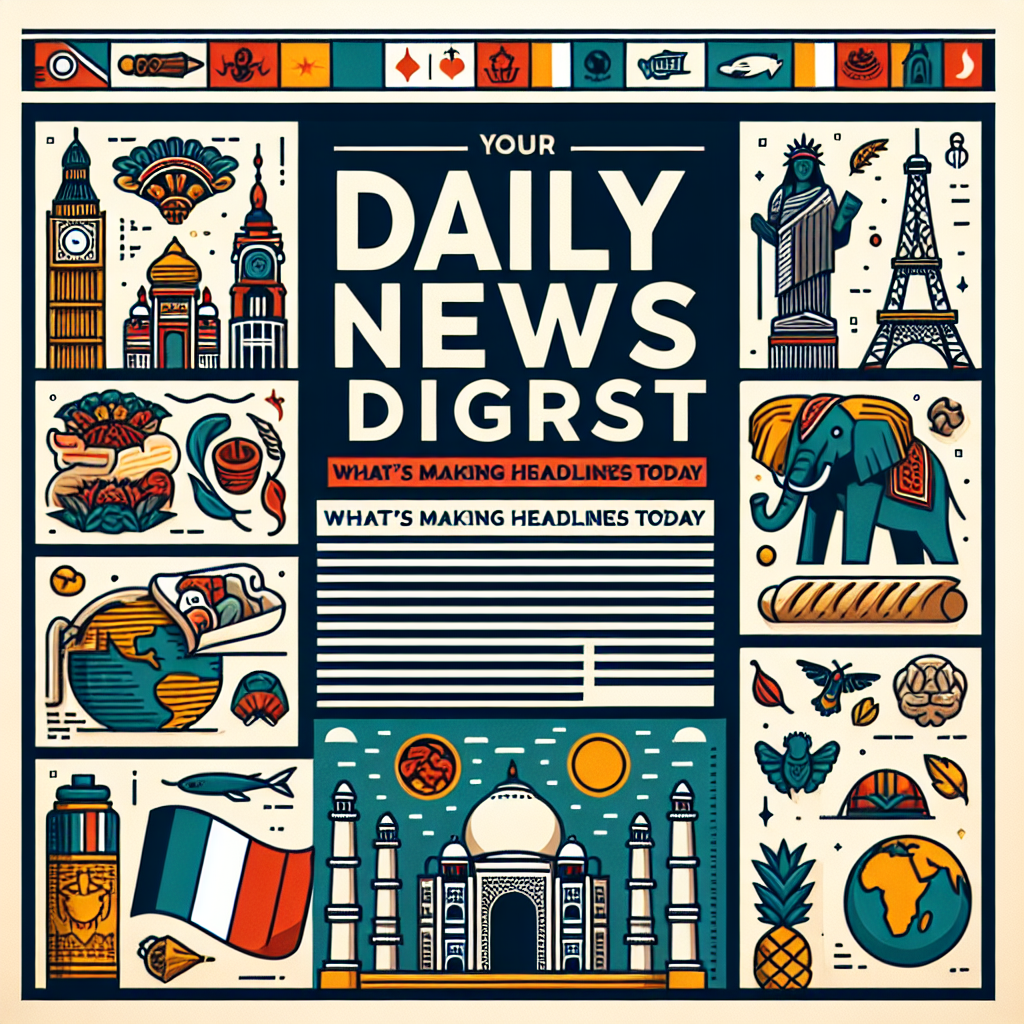From Politics to Culture: Today’s News in Focus

Table of Contents
- Understanding the Political Landscape
- The Current State of Politics
- Key Political Developments
- The Role of Media in Politics
- The Rise of Misinformation
- Cultural Intersections: The Influence of Politics on Culture
- How Politics Shapes Cultural Identity
- The Impact of Political Events on Artistic Expression
- Emerging Cultural Trends
- The Expansion of Global Voices
- The Interplay Between Politics and Culture
- The Cultural Response to Political Events
- Case Study: Protest Music
- The Cultural Economy
- The Rise of Ethical Consumerism
- Conclusion: The Future of News in Politics and Culture
- Internal Links Summary
In the rapidly evolving landscape of contemporary news, bridging the gap between politics and culture has become essential for understanding today’s societal dynamics. This article delves into the multifaceted dimensions of news as it relates to politics and culture, assessing current trends, significant events, and the broader implications for society.
Understanding the Political Landscape
The Current State of Politics
Today’s political climate is characterized by polarization, populism, and an increasing influence of social media. Political discourse has transformed, with traditional media outlets competing against platforms like Twitter and Facebook for attention. According to a study by the Pew Research Center, over 50% of American adults get their news from social media platforms, significantly influencing public perception and engagement in political matters.
Key Political Developments
Recent events, such as elections, policy decisions, and international relations, have underscored the need for critical engagement with political news. The midterm elections, for instance, showcased a shift in voter demographics and attitudes. An analysis by the Brookings Institution noted that younger voters are more active than ever, driven by issues like climate change, healthcare, and social justice.
External Link: For a comprehensive overview of recent political developments, refer to Pew Research Center.
The Role of Media in Politics
Media plays a pivotal role in shaping political narratives. The efficacy of news outlets in providing unbiased, reliable information is paramount in fostering an informed electorate. However, misinformation and ‘fake news’ present ongoing challenges.
The Rise of Misinformation
The amplification of misinformation has significant consequences for public trust in institutions. A survey conducted by the Knight Foundation highlighted that 77% of Americans believe misinformation affects their perceptions of political events. This underscores the necessity for critical media literacy among the populace.
Internal Link: Learn more about the impact of misinformation in our article on media literacy.
Cultural Intersections: The Influence of Politics on Culture
How Politics Shapes Cultural Identity
Cultural identity is often intertwined with politics. Movements advocating for social change, such as Black Lives Matter and LGBTQ+ rights, have not only influenced political discourse but have also reshaped cultural perceptions and representations.
The Impact of Political Events on Artistic Expression
Political climate directly impacts artistic expression. For instance, visual art, music, and literature often reflect social upheaval or political strife, serving as both commentary and resistance. Artists today are using their platforms to advocate for change, highlighting intersectionality as a crucial aspect of contemporary cultural identities.
Internal Link: Discover how art influenced cultural movements in our article on social change through art.
Emerging Cultural Trends
The cultural landscape is continuously evolving, shaped by global events and movements. With heightened awareness around issues like climate change and systemic racism, cultural narratives are shifting. This shift is evident in media representation, fashion, and public discourse.
The Expansion of Global Voices
Globalization has led to a surge in the diversity of voices within cultural narratives. This has allowed for a richer tapestry of perspectives, encouraging dialogues around inclusivity and representation. Platforms like TikTok and Instagram enable creators from diverse backgrounds to share their narratives, thus democratizing cultural storytelling.
External Link: To explore how global voices are shaping culture, see The Guardian’s analysis on emerging cultural trends.
The Interplay Between Politics and Culture
The Cultural Response to Political Events
Cultural responses to political events highlight society’s collective consciousness. For example, the resurgence of social movements often gives rise to creative expressions that galvanize public sentiment. Documentaries, music, and literature serve as platforms to voice dissent and inspire action.
Case Study: Protest Music
Music has historically been a powerful medium for political protest. In recent years, artists like Billie Eilish and Kendrick Lamar have infused political commentary into their work, addressing issues ranging from climate change to systemic inequality. This phenomenon illustrates how intertwined politics and culture can be.
Internal Link: Read more about the transformative power of music in our feature on protest music.
The Cultural Economy
The intertwining of culture and politics has significant implications for the economy. As cultural movements gain traction, they can influence market trends. Brands that align themselves with cultural and political values often resonate more with consumers, especially younger demographics.
The Rise of Ethical Consumerism
Today’s consumers are increasingly making purchasing decisions based on a brand’s stance on social and political issues. Ethical consumerism reflects a broader trend towards sustainability and corporate responsibility. Companies that engage authentically with cultural narratives often foster loyalty and community.
External Link: To understand more about ethical consumerism and its impact, visit Forbes’s insights on the topic.
Conclusion: The Future of News in Politics and Culture
As we look ahead, the interplay between politics and culture will likely intensify. The emergence of new technologies, the evolution of social movements, and the persistent challenge of misinformation demand critical engagement. For entrepreneurs, marketers, and business leaders, understanding these dynamics is crucial for navigating the increasingly complex social landscape.
By maintaining a focus on accurate reporting and fostering inclusive dialogues, stakeholders at all levels can contribute to a more informed society. As the world continues to change, so too will the narratives that shape our political and cultural realities.
Internal Links Summary
Engaging with the content and discussions surrounding politics and culture is not just beneficial; it is essential in fostering a future where diverse perspectives and inclusive dialogues lead to meaningful change.
Latest Posts
Lorem ipsum dolor sit amet, consectetur adipiscing elit. Ut elit tellus, luctus nec ullamcorper mattis, pulvinar dapibus leo.
TOP NEWS
Copyright © 2025 heartlandheadlines.site | All rights reserved.



















No Comments